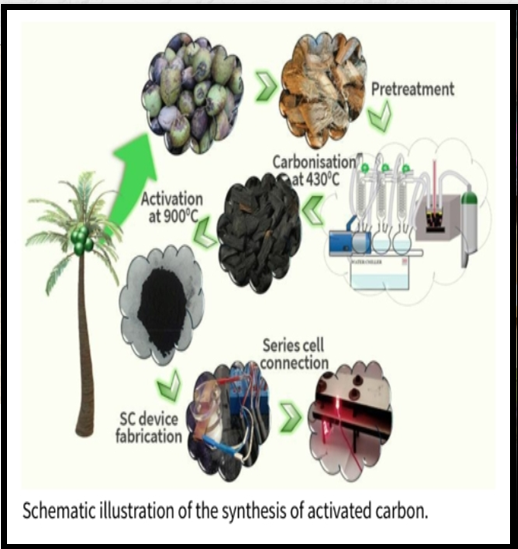COCONUT HUSK-DERIVED CARBON FOR SUPERCAPACITORS
Why in the news?
- Researchers at the Government College for Women, Thiruvananthapuram, developed a method to produce activated carbon from coconut husks for supercapacitors.
- This eco-friendly and cost-effective method could revolutionize sustainable energy storage solutions.
Source: TH
What is Activated Carbon?
Activated carbon is a processed form of carbon with small, low-volume pores that increase surface area for adsorption or chemical reactions. It is widely used in water purification, air filtration, and as a catalyst support.
Key Findings
- The activated carbon derived from coconut husks shows promise for high-performance super capacitors due to its availability and low cost.
- Prototype supercapacitors using this material are four times more efficient than existing ones.
| Understanding Supercapacitor:
A supercapacitor, or ultracapacitor, is an electrochemical charge storage device that offers high-power density, long durability, and ultrafast charging capabilities, outperforming conventional capacitors and lithium-ion batteries. It comprises electrodes, electrolytes, separators, and current collectors. Advantages:
Components:
|




